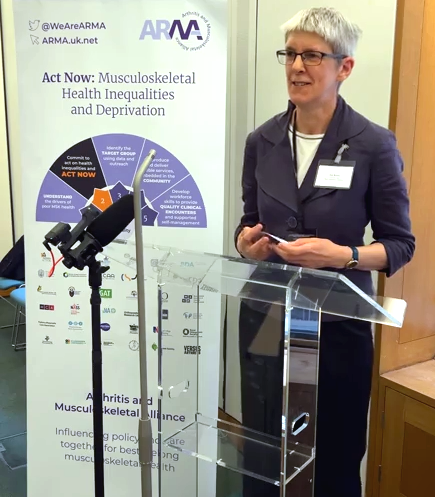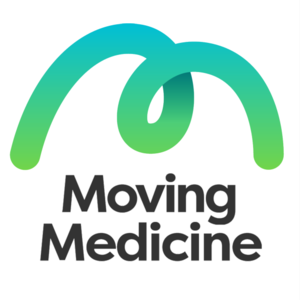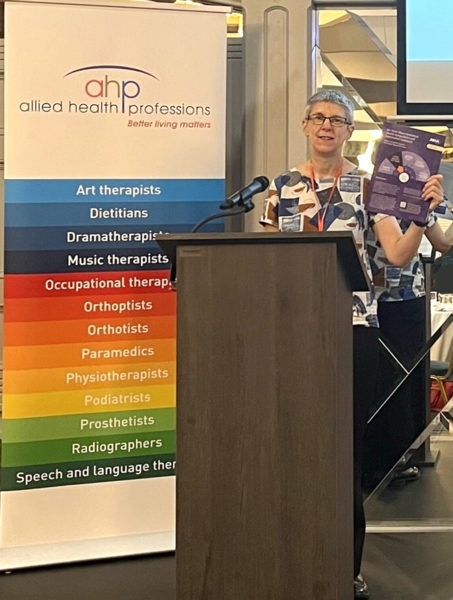 by Sue Brown, CEO ARMA
by Sue Brown, CEO ARMA
It was a pleasure to join the CSP conference last week to speak about our Act Now report and what MSK physios can do to address health inequalities. As ever, lots of enthusiasm from people wanting to work on this. Our workshop was packed and 75% of people said they felt it was going to be difficult to do this but they were up for a challenge.
We asked what support would help people to make progress on inequalities. The list included funding, time, more joined up services, understanding of the local population and management support. One that came up a number of times was knowing how to have conversations about physical activity and weight management whilst still having a therapeutic relationship.
This is an important question in relation to inequalities. People in more deprived areas are less likely to be physically active. Women are less active than men. People in more deprived areas are much more likely to be living with obesity and the gap is significantly greater for women.
 For physical activity, of course, we have Moving Medicine consultation guides, which take you through how to introduce the subject and have a conversation with a patient about being more active in a way that maximises the chance they will act on the discussion. There are guides for MSK pain, inflammatory rheumatic conditions and falls and frailty.
For physical activity, of course, we have Moving Medicine consultation guides, which take you through how to introduce the subject and have a conversation with a patient about being more active in a way that maximises the chance they will act on the discussion. There are guides for MSK pain, inflammatory rheumatic conditions and falls and frailty.
There is currently no similar tool for discussions about weight management. This is becoming increasingly important, as Wes Streeting talks about expanding access to weight loss drugs. Experts have pointed out that even with the drugs, people living with obesity will need support to be more active and eat a healthier diet.
 The recent position statement from the Obesity Health Alliance highlights evidence that people with obesity respond positively to discussions about weight and health related behaviours that are supportive and empathetic. While gathering evidence for our inquiry we heard from people who felt that all their symptoms were put down to their weight, and this led them to avoid approaching health care. With one in three people in the UK living with obesity and the link between weight and MSK pain, it seems important that we develop some tools for MSK healthcare professionals to support them in addressing this with patients. In a sensitive, non-stigmatising, supportive way.
The recent position statement from the Obesity Health Alliance highlights evidence that people with obesity respond positively to discussions about weight and health related behaviours that are supportive and empathetic. While gathering evidence for our inquiry we heard from people who felt that all their symptoms were put down to their weight, and this led them to avoid approaching health care. With one in three people in the UK living with obesity and the link between weight and MSK pain, it seems important that we develop some tools for MSK healthcare professionals to support them in addressing this with patients. In a sensitive, non-stigmatising, supportive way.
MSK health does not operate in a silo. MSK health care professionals need to be given the tools and training to work with the complexity of their patients’ lives. This is not about “lifestyle choices” – many people face significant barriers to healthy behaviours. MSK professionals are in a good position to help if given the right tools.

